Our history
A thrilling 100-year journey

A thrilling 100-year journey

Every destination is really only a milestone in our journey. So turning 100 is a precious opportunity to rediscover our unique history and let it inspire us to face the challenges of the future. After a whole century in business, Angelo Po is still doing what it has always done, although with renewed energy: imagining how to improve the catering of tomorrow.
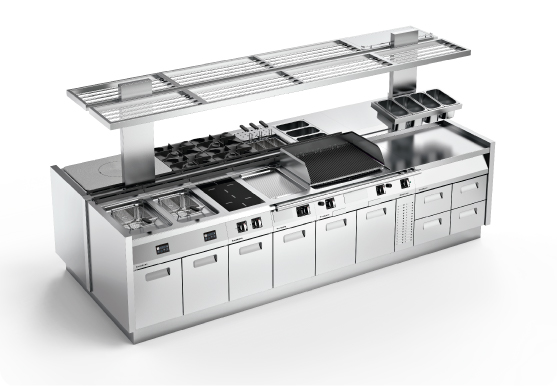
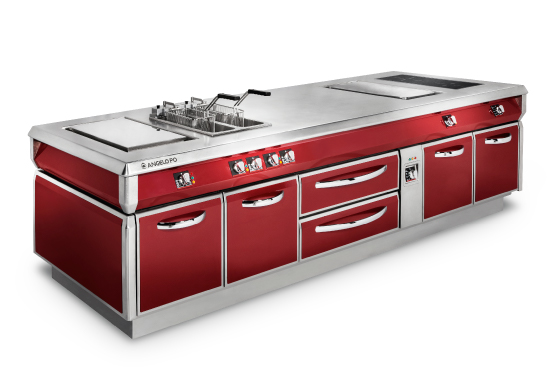
In 2016 Angelo Po became part of Marmon Holdings, a Berkshire Hathaway Inc. corporation, joining over 100 companies in a wide variety of industries which generate turnover of about 10 billion dollars and have a total workforce of over 28,000 people. 2019 saw the birth of Marmon Foodservice Technologies, an international network of catering sector brands renowned for the quality, safety and innovation of their products; Angelo Po and Sagi are the key businesses in systems and services for the catering sector.
Angelo Po has become an internationally important brand, up to tackling the challenges of a larger and larger market: a specialist in the entire kitchen system, known to and appreciated by the catering market worldwide for its sound commercial network and ever-deepening integration of technical know-how and industrial automation, product efficiency and quality of design.
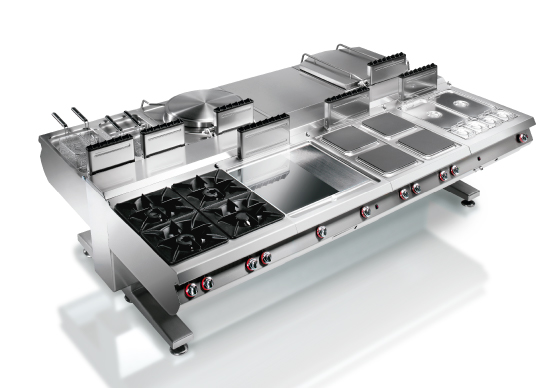
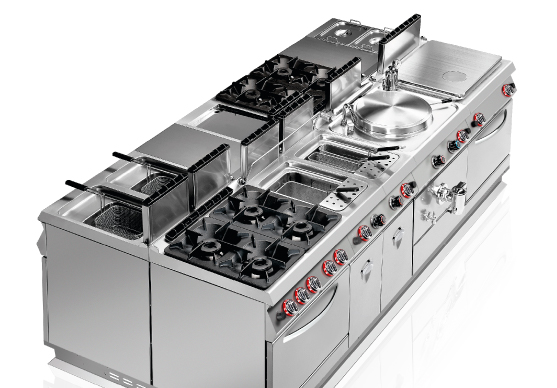
Angelo Po emerges from the Eighties as a strongly internationalised organisation. It is a decade of big changes: the first modular professional cooking ranges and the new convection ovens are launched; the doors to various European markets open; the catalogue is extended: and there are major technological developments in design and production.
Angelo Po’s grandchildren Amerigo, Rossella and Alessandro take over the reins of the company and consolidate the brand’s credibility. The Sagi plant, built in Ascoli Piceno, is destined to become a centre of excellence for quality professional refrigeration appliances. It produces Angelo Po brand refrigerated cabinets and counters, blast chillers and freezers.
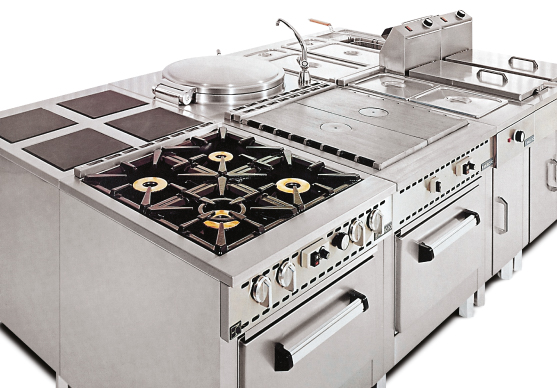
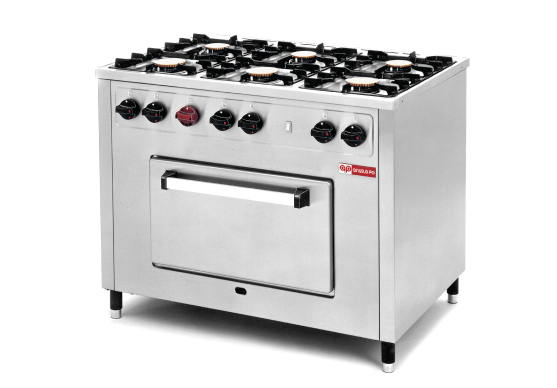
The sixth decade in business opens with the inauguration of the current plant. A publication celebrating the company’s 50th anniversary clearly states its determination to produce appliances which help not only to cook foods in the shortest possible time but also to prepare them, an aim that reflects an unconditional respect for food, for the best methods for preparing every ingredient and every dish, and for everyone who is to consume them. A commitment that orients the company towards excellence on all levels.
The synergy of research, technology and design generates various major innovations. After Angelo is killed in a road accident in 1967, his sons guide the company in the launch of the first modular professional ranges. At the same time, new markets open out: field kitchens mark the start of exports to the Middle East.
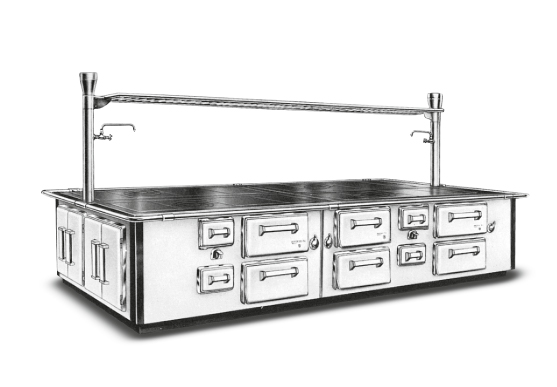
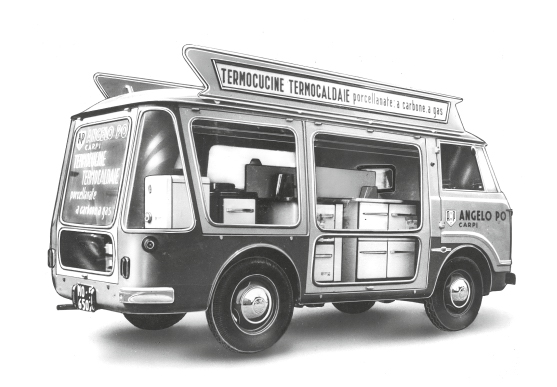
The first heating stove under the Angelo Po brand is produced in 1950. By the middle of the decade, Angelo Po’s sons Alberto and Alfio have already joined the business. In 1956 the company moves again, this time to a new facility that occupies a whole block not far from the historic town centre. The bond with the Carpi area and its community will never be broken and will in fact be consolidated more and more over time.
Once the War is over, Italy’s mood is buoyant and a spirit of innovation is abroad. Thanks to the installation of mains gas supply systems, wood-burning cooking stoves give way to the first large professional ranges for institutions such as schools, barracks and hospitals. Production of domestic boilers and radiators also begins in these years.
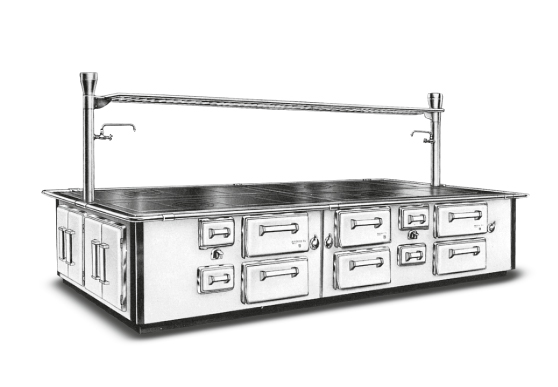
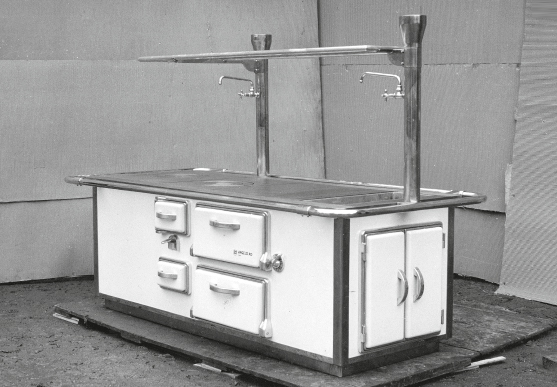
While continuing to create metalwork for residential buildings worthy of a goldsmith and not a mere blacksmith, Angelo Po experiments with the use of stainless steel, which most people have not yet heard of. Angelo starts to make the Barilotto, a stove that burns sawdust, which many Carpi households will use to keep warm during the cold winters of the Second World War.
Angelo Po immediately grasps the potential of the wood-burning cooking stoves he is often asked to repair as he sets up in business as a blacksmith. In what is almost a pioneering move for the time, he develops his own version of those enamelled stoves and calls it the Carpigiana. It is shortly to evolve into the Americana, more elegant, almost refined in appearance, with many innovative features.
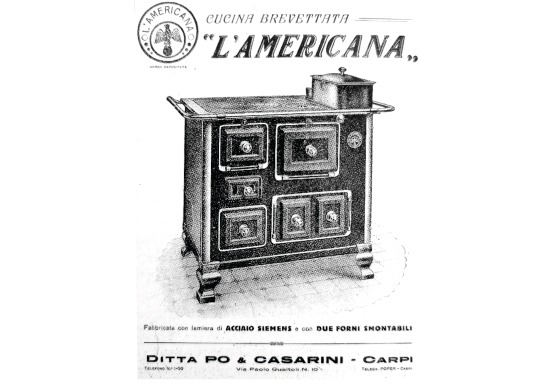
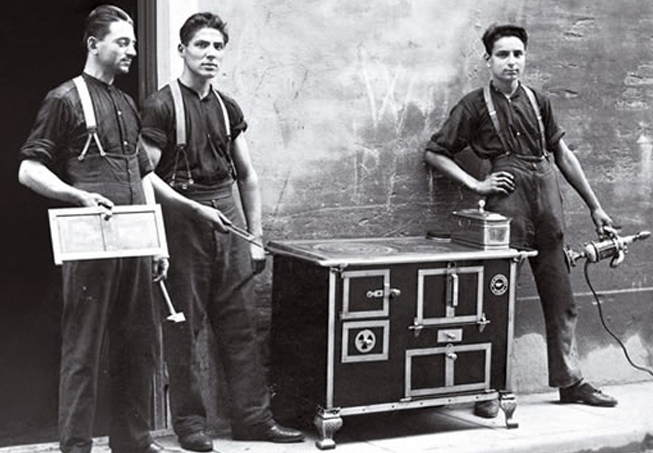
In 1922, Angelo Po is 28 years old and is considered to be one of Carpi’s best blacksmiths. Driven by a great passion for his work, extraordinary determination and an innate confidence in his own potential, Angelo opens his first workshop with the aid of what was a fairly large loan for the time.
